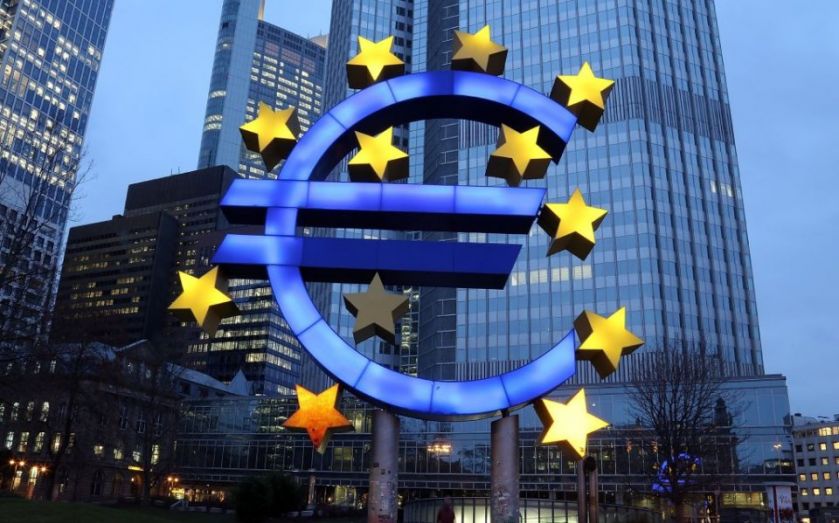Five key takes from the European Central Bank’s June press conference

The European Central Bank (ECB) left its economic forecasts largely unchanged today – with the growth outlook for 2015 staying at 1.5 per cent, rising to 1.9 per cent in 2016. Growth forecasts for 2017 were cut slightly, from 2.1 per cent down to two per cent.
The ECB left inflation projections for 2016 and 2017 unchanged at 1.5 per cent and 1.7 per cent respectively. Nonetheless, it revised this year's inflation forecast up to 0.3 per cent from zero due to "temporary factors".
And president Mario Draghi said that while risks surrounding the economic outlook remained to the downside, this was less so that than when its quantitative easing programme was first launched in March.
Slight loss of momentum
Draghi said the central bank been expecting stronger signs of economic growth – however the recovery is still proceeding as expected.
"[The] recovery is on track exactly according to our projections… however, we had expected stronger figures," he said.
He flagged a modest loss of economic momentum, primarily due to the weakening of the economies outside the euro area – particularly in the emerging markets.
"[We] just wanted to point out this slight loss of momentum coming from the trade sector."
The Greek debt crisis
Draghi was at pains to avoid speculating on the likelihood of Greece defaulting on its debt pile.
However, he did say additional aid to Greece would give the ECB reason to consider lifting a cap on the issuance of T-bills by the Greek government.
"A disbursement… would be the condition for the governing council to consider… a lifting of the T-bills thresholds… and we are not there."
Cœuré controversy
Last month ECB economist Benoît Cœuré contravened the central bank's rules, delivering market-sensitive information to an audience of investors before the ECB had made this public on its website.
The euro fell 1.5 per cent after the ECB official said that the central bank would buy extra bonds during May and June to make up for the amount it believes it will be unable to purchase in July and August.
"What happened on that occasion was basically a mistake… the text of the speech was meant to go live… before the speech took place… and instead went live the morning after," Draghi said.
"[We are reviewing] our rules… and we'll shortly come out with a new set of rules as far as speaking engagements are concerned."
Volatility here to stay
Investors should buckle up because volatile markets are here to stay, according to the ECB president. However, this will not impact the future trajectory of the central bank's monetary policy.
"We should get uses to periods of higher volatility … at very low interest rates asset prices tend to show higher volatility," he said.
"[The] governing council is unanimous in its assessment we should look through these developments and maintain a steady monetary policy stance."
No QE exit strategy
Draghi said that he was confused as to why he's even being asked about the central bank pulling the bond-buying programme ahead of schedule.
He also stressed that the governing council wasn't yet considering potential exit strategies saying they're a "high class problem".